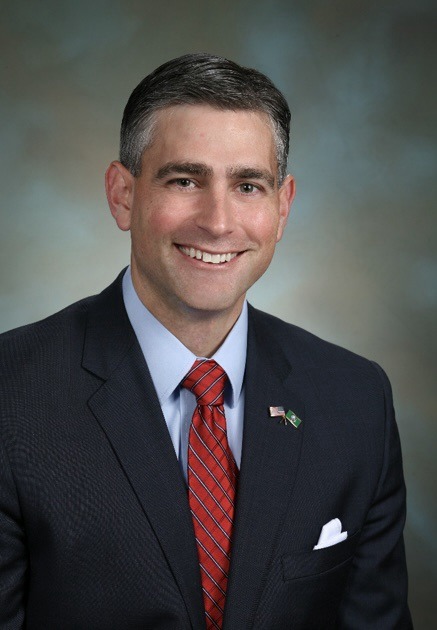Let’s get straight to the point: Jesus didn’t care about wealth, power, or status. He didn’t hang out with the rich and the influential. He spent his time with people society saw as worthless—prostitutes, tax collectors, and criminals. These were the people everyone else looked down on, but Jesus showed them something the world couldn’t: real love, forgiveness, and the chance to change. That’s the Jesus we’re supposed to follow. But today, many so-called followers of Jesus have it backwards. They idolize the rich and powerful, while pushing down the very people Jesus spent his life trying to lift up. It’s time for a reality check.
“If we’re more concerned with making money than with loving people, we’re missing the point of the gospel.”
Let’s start with the famous moment when Jesus went to the temple in Jerusalem. What did he find? A group of money changers and merchants turning God’s house of worship into a marketplace. They were ripping people off, charging them ridiculous prices just to offer sacrifices to God. And what did Jesus do? He flipped over their tables and shouted, “My house shall be called a house of prayer, but you have made it a den of thieves.” He didn’t whisper a polite complaint; he was angry. He wasn’t just upset about the business—he was furious that they were exploiting people, especially the poor. Jesus didn’t just walk away; he took action.
Jesus didn’t have time for the wealthy elite. In fact, he warned over and over again that the love of money would keep people out of God’s kingdom. He even said, “It is easier for a camel to go through the eye of a needle than for a rich person to enter the kingdom of God.” (Mark 10:25) Jesus didn’t hate rich people; he hated what wealth does to the heart. It makes us selfish, greedy, and blind to the suffering of others. The problem isn’t having money—it’s when money owns you, and you forget that love and generosity are the real markers of a Christ-follower.
Instead of cozying up to the rich and powerful, Jesus spent his time with those society rejected—the poor, the sick, the broken. He didn’t write them off as “sinners” or “losers.” He saw them as people who mattered deeply to God. Jesus didn’t care what kind of past they had. He cared about their hearts and the potential for change. He treated the outcasts with dignity and love, something the religious elite of his time refused to do. Jesus wasn’t about living the high life or rubbing elbows with the “important” people. He was about reaching those who were most in need of a new beginning.
But today? We’ve got it all twisted. In many churches and Christian circles, the rich are worshipped like they’re somehow closer to God, as if wealth is a sign of divine favor. The bigger the bank account, the better the blessing. That’s not what Jesus taught, and it’s certainly not what he lived. Jesus never celebrated wealth. He didn’t teach that wealth was a sign of God’s approval. He didn’t promise us riches. He promised us something far more valuable—eternal life, peace, and the chance to make a real difference in the world.
The prosperity gospel—this idea that following Jesus will make you rich—is a lie. Jesus didn’t die so we could all drive luxury cars and build bigger houses. He died to show us that true greatness comes from humility, love, and serving others. His kingdom is not about who has the most toys; it’s about who loves the most. He said it’s better to give than to receive, and he meant it. The rich man who gave only a fraction of what he had didn’t impress Jesus. It was the poor widow, who gave everything she had, that Jesus praised.
Look around today. Who are we really following? The rich, famous, and powerful? Or are we following Jesus, who spent his life with the outcasts and the overlooked? Too often, we let ourselves be distracted by the shiny lives of celebrities and billionaires. But that’s not the path Jesus walked. He walked among the broken, the humble, and the hurting. He came to lift them up, not to keep them down. And that’s what we are supposed to be doing too.
Jesus didn’t just talk the talk—he walked the walk. He didn’t build a mansion or set up a personal empire. He lived simply, gave generously, and cared for those who needed it the most. We’re called to do the same. If we’re more concerned with making money than with loving people, we’re missing the point of the gospel. If we idolize the rich while ignoring the poor, we’re going against everything Jesus stood for.
Jesus told us, “The last will be first, and the first will be last.” In God’s kingdom, the people you think are the least are actually the most. The poor, the sick, the broken—those are the ones God values most. Those are the people Jesus spent his life loving and serving. So ask yourself: Are we more concerned with building our own wealth and status, or with following the example of the man who gave it all up for others?
It’s time to wake up. If we’re following Jesus, we need to live like he did. That means loving the unlovable, serving the overlooked, and not letting money or status control our hearts. Jesus didn’t come to make us comfortable; he came to make us change-makers. It’s time we stop idolizing the rich and start living the way Jesus lived—by loving, serving, and lifting up those who need it most.





